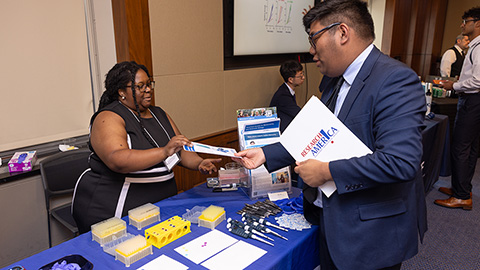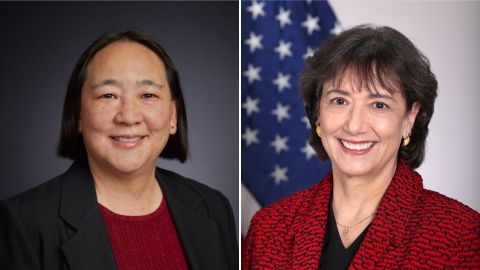ASBMB releases statement on sustaining U.S. scientific leadership
Ahead of Monday’s presidential inauguration and following the convening of the 119th U.S. Congress on Jan. 4, the American Society for Biochemistry and Molecular Biology has released a statement encouraging the executive and legislative branches of government to continue their support of the nation’s leadership in science.
Mona Miller, ASBMB chief executive officer, said, “As a trusted source of information to inform evidence-based science policy, ASBMB stands ready to work with both the incoming administration and Congress to sustain the United States’ scientific leadership and encourage continuing innovation. We will continue to highlight the critical importance of supporting basic research to advance biomedical discoveries that improve health, drive economic growth and benefit our society.”
Read more in the ASBMB statement.
Enjoy reading ASBMB Today?
Become a member to receive the print edition four times a year and the digital edition monthly.
Learn moreGet the latest from ASBMB Today
Enter your email address, and we’ll send you a weekly email with recent articles, interviews and more.
Latest in Policy
Policy highlights or most popular articles

Embrace your neurodivergence and flourish in college
This guide offers practical advice on setting yourself up for success — learn how to leverage campus resources, work with professors and embrace your strengths.

ASBMB honors Lawrence Tabak with public service award
He will deliver prerecorded remarks at the 2025 ASBMB Annual Meeting in Chicago.

Summer internships in an unpredictable funding environment
With the National Institutes of Health and other institutions canceling summer programs, many students are left scrambling for alternatives. If your program has been canceled or delayed, consider applying for other opportunities or taking a course.

Black excellence in biotech: Shaping the future of an industry
This Black History Month, we highlight the impact of DEI initiatives, trailblazing scientists and industry leaders working to create a more inclusive and scientific community. Discover how you can be part of the movement.

ASBMB and advocacy: What we accomplished in 2024
PAAC members met with policymakers to advocate for basic scientific research, connected some fellow members with funding opportunities and trained others to advocate for science.

‘Our work is about science transforming people’s lives’
Ann West, chair of the ASBMB Public Affairs Advisory Committee, sits down Monica Bertagnolli, director of the National Institutes of Health.
